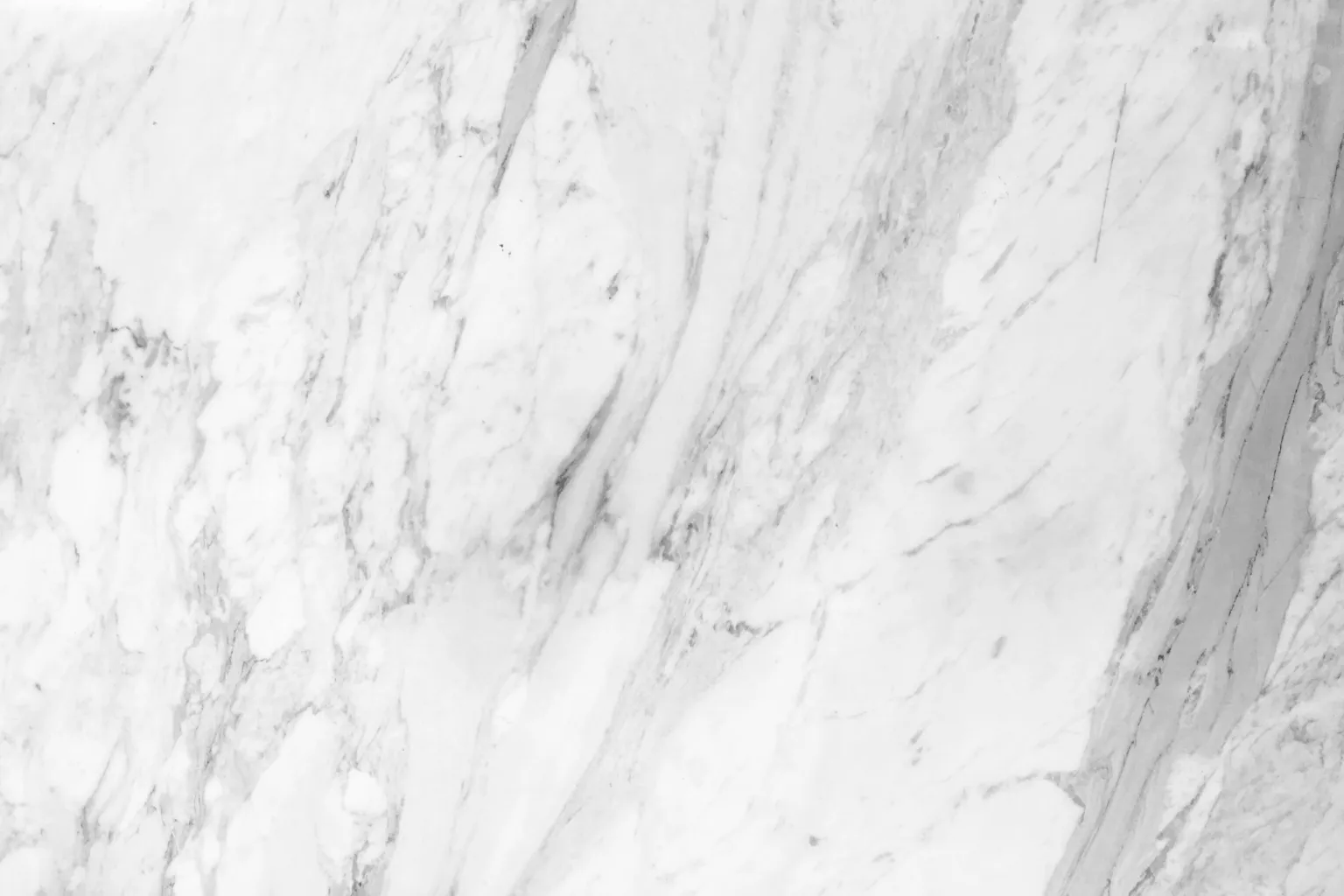
Granite remains our most popular surface choice because of its durability and overall pleasing beauty. Our premium surface granite selection offers over 250 color patterns. We have the perfect granite countertop for your project whether your granite countertop needs are for your kitchen, bathroom, or other surface. All granite countertop slabs are in-stock and ready for prompt delivery.
Marble is formed from limestone, superheated to form its unique crystalline structure. Our marble countertop selection is unmatched with over 50 marble color options and patterns to choose from. Marble countertop surfaces are timeless with their classic beauty and elegance. If you are looking for a surface to sustain through the ages, this natural stone countertop material is perfect for you. Its naturally cool temperature is pleasing for cooking as well as keeping any workspaces temperature controlled.
Quartz is an extremely hard and resilient materials that is stain resistant, easy to maintain, and safe for food preparation. Quartz is crystallized silicon dioxide which is most commonly white or transparent, but that can change depending on the impurities where it was found and some of the manufacturing processes. This stone is naturally non-porous and scratch resistant, which means that it is also naturally resistant to microbes and odor-causing bacteria. While it is still possible to find quartz that has been cut from a large slab, most of the commercially available products are actually engineered with mixes of ground natural quartz and polymer resins.
All three material options are known for their durability. Granite, marble and quartz can last up to 20 years or more with proper care. They’re also all heat-resistant.
Marble is the softest of all three materials, which means that it can be scratched or chipped the most easily. Granite is the second softest, making quartz the most resistant to lasting damage.
All three materials are “natural” in the sense that they’re stone. But only granite and marble qualify as “natural stone” because they don’t go through a manufacturing process – they’re mined as-is. Quartz is “engineered” because it’s crushed and mixed with pigment.
To some, this difference doesn’t matter much. To others, “natural” is the main point of differentiation. They wouldn’t choose laminate floors over hardwood, so why would they choose engineered stone over natural stone?
Granite and marble are porous materials, which means that spilled liquids can potentially seep into the counter and stain it. Marble especially is more vulnerable to acidic liquids like wine and juice. Those pores can also potentially harbor hard-to-reach bacteria and germs.
Quartz, on the other end, is non-porous. It doesn’t stain or harbor bacteria nearly as easily. That also makes it easier to clean.
One of the major downsides of marble and granite: maintenance. Since both are porous, both need to be sealed at installation. They’ll also need to be resealed every one or two years. Because it isn’t porous, quartz doesn’t need to be sealed like this.
Every single slab of marble and granite is unique because it is mined, not manufactured. That means you’ll never have to worry about someone else having the same counters as you do.
Quartz, on the other hand, is engineered in a certain way, which means that many slabs might look similar and won’t look quite as “natural” as granite or marble.
While every granite and marble slab is unique, they often have a similar feel because they’re formed in a certain way. And while there are many different colors and types of granite and marble available, the variety isn’t endless.
Quartz, on the other hand, can be mixed with a huge number of different pigments, which means there’s a larger variety of more consistent colors available.
If you want quality counters, then there’s no good “cheap” option. Neither granite nor marble nor quartz are cheap, though some slabs are less expensive than others.
The most affordable slabs of granite and quartz start at around the same price point.
On the higher end, quartz is the least expensive followed by granite and then marble.
There’s no one “best” material. It depends on what your major concerns are.
Quartz is often the most affordable option. It’s also easiest to maintain and often more durable than marble and granite. But it doesn’t have the same high-end, natural look that marble and granite do.
Granite is usually more expensive than quartz but less expensive than marble. It’s also more durable than marble. But the coloration might not be as consistent, and it can’t match the luxurious look of a marble slab.
In the end, marble is marble, and if you’re set on the look of marble, there’s no substitute. It might be a bit more expensive, but if you’re set on marble and it matches your kitchen or bathroom, it’s worth it for your countertop.
